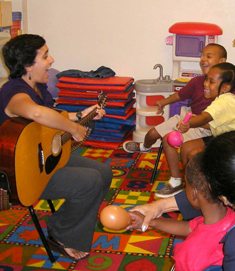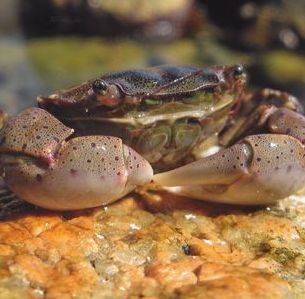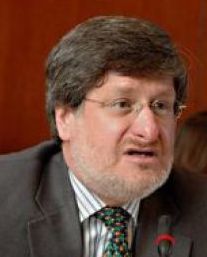Archive for April 4th, 2011
Passengers trapped in lifts as power goes out
(CNS): A number of people were trapped in elevators on Monday as a result of the power outages affecting Grand Cayman. Although a CUC spokesperson said the power firm had been calling businesses to inform them of the need to cut power in the capital, it appears people who were unaware were still caught out. People were also reportedly caught in the lift at the brand new government accommodation building on Elgin Avenue. Although not all of the civil servants have moved across to the state-of-the-art five storey building yet, several departments have already moved in. It is not clear if the back-up generators for the new government office failed or if these have not been turned on as the building is not yet full.
CUC is warning that rotating blackouts could affect all districts ofGrand Cayman until next month as a result of a combination of explosions at the plant earlier this year and major mechanical failures which put three major generators out of action, as well as new generator problems experienced this weekend.
Murder retrial still in limbo
(CNS): A second attempt to begin the retrial of William Martinez-McLaughlin for the murder of Brian Rankine-Carter failed Monday morning despite the selection of a new jury. Following legal complications, the judge ordered an adjournment until Wednesday when the ten women and two men are expected to hear evidence from the crown against the accused man, who has now been in custody for almost three years. Martinez-McLaughlin, whose conviction for Rankine’s murder was overturned last August, has remained in prison since he was first arrested for the crime in May 2008. He was convicted by a jury in July 2009 but a year later the guilty verdict was overturned by the Court of Appeal, owing to a misdirection by the trial judge.
Efforts by the prosecution to re-try the defendant failed in January this year when closed door legal arguments exhausted the allotted trial timetable. Further legal issues again halted proceedings this morning before Justice Charles Quin sent the newly selected jury away until 6 April. It took around 40 minutes and several challenges before twelve members of the public who were not connected in some way to the defendant, the trial witnesses, or the lawyers involved in the case were sworn.
During the original trial the crown had relied upon a combination of forensic evidence, expert witnesses and a key witness, who was later convicted as an accessory to the murder.
Jason Hinds, who testified that he was with McLaughlin-Martinez on the night of the killing and saw him attack the twenty-year-old Rankine-Carter, is a Jamaican national who was deported by authorities here after he had served part of a three year sentence for his part in the crime. The defence, however, has maintained since the original trial that McLaughlin-Martinez was the accessory and Hinds the murderer.
The murder was described at the time by the police as particularly brutal, as the young male victim sustained more than 48 wounds during what appeared to be a frenzied attack with a machete.

Education department introduces music therapy
 (CNS): Government officials have revealed this week that the Ministry of Education, Training and Employment has introduced music therapy to assist individuals with developmental, learning, and other disabilities. Since October 2010, students from the Sunrise Adult Training Centre clients, the Lighthouse School, Early Intervention, and Savannah Primary have participated in weekly music-therapy sessions with Cayman Music Therapy Founder Julianne Parolisi. There are around 150 clients within the government system that are now making music with Parolisi and the ministry hopes to able to expand the therapy to other students in the government system facing behavioural r problems when funds become available.
(CNS): Government officials have revealed this week that the Ministry of Education, Training and Employment has introduced music therapy to assist individuals with developmental, learning, and other disabilities. Since October 2010, students from the Sunrise Adult Training Centre clients, the Lighthouse School, Early Intervention, and Savannah Primary have participated in weekly music-therapy sessions with Cayman Music Therapy Founder Julianne Parolisi. There are around 150 clients within the government system that are now making music with Parolisi and the ministry hopes to able to expand the therapy to other students in the government system facing behavioural r problems when funds become available.
According to the American Music Therapy Association the therapy, which is new to Cayman, is an established healthcare option that uses music to address physical, emotional, cognitive and social needs Music therapy helps strengthen abilities which can be transferred to other aspects of life. It provides avenues for communication that can be helpful to those who otherwise find it difficult to express themselves.
The association further asserts that research supports the effectiveness of music therapy. It is proven to facilitate movement and overall physical rehabilitation, motivate people to cope with treatment, provide emotional support for clients and their families, and provide an outlet to express feelings.
Parolisi said music therapy even improves the quality of life for persons who are well. It also meets the needs of children, teens, adults and elders with challenges, special needs or illnesses. “Because music is a powerful, yet non-threatening medium, unique outcomes are possible,” she said.
“It touches each person in so many different ways, so participation offers significant opportunities for growth, creativity and expression that are less easily achieved through more traditional therapies.”
Her sessions typically include music improvisation and receptive listening, music composition or song writing, lyric discussions, singing or playing familiar songs, group music-making, and music technology projects. During therapy Parolisi also evaluates emotional well-being, physical health, social functioning, communication abilities, and cognitive skills – and all through her clients’ musical responses.
Ministry of Education, Training and Employment’s Senior Policy Advisor for Special Educational Needs Brent Holt said the ministry is excited to have Parolisi onboard.
“Recognising that many children and adults who have special education needs require a broad range of therapeutic services, we were excited when the opportunity to work with Cayman Music Therapy materialised just after the start of the current school year,” he said. “Many of the student and adult participants have difficulty communicating, especially in expressing higher-level emotional needs. Since introducing music therapy, we’ve witnessed improved social behaviour among other excellent results.”
Sunrise Adult Training Centre Director Roberta Gordon added that music has always been a motivator for the group especially for those with little or no verbal ability. “Last year our Christmas concert was phenomenal,” she said. “Clients not only participated but actively planned the event. Some who are normally very quiet have become more confident and verbal after just a few months of therapy.”
The education ministry said it hopes to expand therapy in the coming 2011/12 budget year, to include Alternative Education Services students who have the most challenging emotional and behavioural disorders.

Local Lions build ramp for elderly West Bayer
 (CNS): Lions from the Grand Cayman club were getting down to some hard work recently in order to help out an elderly West Bay resident. The club was mixing cement in order to make Hebe Groves-McCartney a much needed wheel chair ramp to help her get in and out of her own home. “The Club’s Social Services Committee received a request seeking assistance to construct a wheel chair ramp for an elderly resident and felt that it was a worthy cause” said Lion President Lion Donnel O’Sullivan.” It is projects such as these that the Club seeks the support from the community each year to assist with and we are continually grateful.
(CNS): Lions from the Grand Cayman club were getting down to some hard work recently in order to help out an elderly West Bay resident. The club was mixing cement in order to make Hebe Groves-McCartney a much needed wheel chair ramp to help her get in and out of her own home. “The Club’s Social Services Committee received a request seeking assistance to construct a wheel chair ramp for an elderly resident and felt that it was a worthy cause” said Lion President Lion Donnel O’Sullivan.” It is projects such as these that the Club seeks the support from the community each year to assist with and we are continually grateful.
Members who were not mixing concrete also helped by provided refreshments and the materials used to make the ramp. The NRA supplied the all important cement mixer used by the Lions to complete the project.
Lions International is the world’s largest service club organization, with nearly 1.4 million members in approximately 46,000 clubs in 193 countries. Since 1917 Lions Clubs have aided the blind and visually impaired and made a strong commitment to community service and serving youth throughout the world. For more information about Lions Clubs International logon to www.lionsclubs.org.

Young explorers heading for Cayman expedition
 (CNS): Fifteen kids from the United States and Canada will be visiting Cayman this summer as members of the 2011 National Geographic Kids Hands-On Explorer Challenge Expedition Team, sponsored by the Cayman Islands Department of Tourism. Aged between 9 and 15, the kids have all demonstrated a passion for exploration and were selected from a pool of contestants from across North America. The Cayman Islands trip will be the fifth NG Kids Hands-On Explorer Challenge expedition following trips to the Galápagos Islands, South Africa, Australia and Peru. Premier McKeeva Bush said Cayman was delighted to partnerwith the magazine and was confident the young explores would find the perfect mix of biological and ecological experiences.
(CNS): Fifteen kids from the United States and Canada will be visiting Cayman this summer as members of the 2011 National Geographic Kids Hands-On Explorer Challenge Expedition Team, sponsored by the Cayman Islands Department of Tourism. Aged between 9 and 15, the kids have all demonstrated a passion for exploration and were selected from a pool of contestants from across North America. The Cayman Islands trip will be the fifth NG Kids Hands-On Explorer Challenge expedition following trips to the Galápagos Islands, South Africa, Australia and Peru. Premier McKeeva Bush said Cayman was delighted to partnerwith the magazine and was confident the young explores would find the perfect mix of biological and ecological experiences.
"We look forward to welcoming all of the explorers and are confident that our Islands will provide the perfect mix of biological and ecological experiences for the young explorers to enjoy,” said Bush, who is also the minister of tourism.
“With three Islands to explore, we anticipate that our natural resources will serve as an unforgettable outdoor classroom that will offer the participants a deeper understanding of nature and conservation – both above and below the water. Additionally, I am particularly pleased that the young explorers will have an opportunity to visit some of our most iconic attractions and experience first-hand, some of the many elements that make the Cayman Islands a culturally rich destination."
The expedition will include boarding the Atlantis Submarine to learn about vast coral canyons and the underwater environment; a snorkeling trip to explore the ex-USS Kittiwake shipwreck and the marine life that only recently began occupying the vessel; observing plant and animal species living in the woodland ecosystem off the Mastic Trail; observing and learning about the highly endangered Blue Iguana at the Queen Elizabeth II Botanic Park, and exploring a system of caves that provided shelter for many Caymanians when the islands were first settled.
To compete for the NG Kids Hands-On Explorer Challenge, kids were invited to write an essay of 300 words or less telling of their explorations and the interesting things they have found along the way. Each applicant also submitted a photograph that they took themselves, which illustrated the subject of their essay. A panel of National Geographic experts chose 15 kids whose essays and photographs expressed the most interest in and enthusiasm for exploring, while adhering to the judging criteria.
This year’s winners include a young sailor who longs to visit distant continents; an avid swimmer and animal lover who enjoys fishing and exploring with friends; a child who monitors water quality and levels in his pond when watering his plants; and young explorers captivated by sea life. As part of their prize, all explorers will be equipped with a Nikon® D3100 camera to document their journey.
Throughout the expedition, the NG Kids Hands-On Explorers will receive tips from National Geographic and local experts on how to capture this field-trip-of-a-lifetime and their new discoveries in pictures and words.
Accompanying the winners will be National Geographic explorer Boyd Matson, host of the radio program "National Geographic Weekend"; National Geographic Kids science editor Catherine Hughes; and National Geographic Traveler magazine senior photography editor Dan Westergren.
"Daring readers to explore, National Geographic Kids magazine aims to excite kids about their world," said Melina Bellows, executive vice president and chief creative officer of National Geographic Books, Kids and Family. "The National Geographic Society has a long tradition of identifying and supporting explorers early in their research, and I can see no greater opportunity than the Hands-On Explorer Challenge to seed the next generation of explorers. The expedition to the Cayman Islands provides an unmatched hands-on learning environment that continues our mission of inspiring people to care about the planet."
The six girls and nine boys were chosen from more than a thousand entries throughout the United States and Canada. To read excerpts from the winning essays and see the winning photos, visit Kids.NationalGeographic.com<http://www.kids.nationalgeographic.com>

UN’s decolonisation committee to meet in Cayman
 (CNS): (See headline news as meeting will no longer be held in Cayman) — The United Nations General Assembly’s Special Committee on Decolonisation will be holding its Caribbean regional seminar on the eradication of colonialism in the Cayman Islands next month. Making the announcement, the chair, Francisco Carrion-Mena (left) said a number of factors were considered in selecting the venue, including the political situation and logistics of several countries in the Caribbean. As well as special guest speakers from NGOs, elected and appointed officials of the territories will be invited to the seminars, but the meetings are traditionally held behind closed doors. However, a group of local activists are calling on the UN, the UK and the local government to open the meeting to the public.
(CNS): (See headline news as meeting will no longer be held in Cayman) — The United Nations General Assembly’s Special Committee on Decolonisation will be holding its Caribbean regional seminar on the eradication of colonialism in the Cayman Islands next month. Making the announcement, the chair, Francisco Carrion-Mena (left) said a number of factors were considered in selecting the venue, including the political situation and logistics of several countries in the Caribbean. As well as special guest speakers from NGOs, elected and appointed officials of the territories will be invited to the seminars, but the meetings are traditionally held behind closed doors. However, a group of local activists are calling on the UN, the UK and the local government to open the meeting to the public.
The UN committee advocates for the rights of the people in all dependent territories to seek self determination and to completely eradicate colonialism.
The People for Referendum said it welcomed the decision to hold the annual seminar here in Cayman, as these meeting have not always taken place in one of the remaining colonies or non self governing territories (NSGT). The local group, which supports the need for the Cayman Islands to move away from its current colonial status, said it believes the meetings should not just be in a NSGT but also be in a public forum.
The matters discussed by this committee directly relate to the governance relationship between the territories and their respective administering power. The group said holding seminars in the territories helps to educate the people about the governance options that the UN resolutions obligate all administering powers make available to the people in the territories.
“For many years our organisation and all other organisations in the constitutional working group requested government to first work towards ensuring that the annual UN Decolonisation Seminars be held only in one of the remaining sixteen listed Non-Self-Governing Territories (NSGT’s) and that the Cayman Islands be one of those NSGT’s,” said Dennie Warren Jr, Chairman of People For Referendum. “Governance education in the NSGT’s is generally very poor and holding these meetings in the NSGT’s is one way to educate the public on their governance system thereby enabling the electorate to make informed decisions in elections and referendums.”
Warren noted that the there are alternatives to the relationship that Cayman currently has with the UK, from a free association governance relationship to becoming an independent state. He explained that some UN member states, such as New Zealand, France and Holland, appear to be compliant with their UN obligations by allowing the electorate in their various territories the UN mandated self-determination right of choosing between the three available options.
Warren said that, unfortunately for the UK’s territories, historically that country is non-compliant with its obligations by repeatedly stating that all of their NSGT’s must take the constitutional relationship the UK decrees or go independent. He explained that as the UK retains the power of “Order in Council” it means it has the power of total governance by decree over the colonies and refuses to devolve any real governance powers to its territories.
The meeting will take place 24-26 May on Grand Cayman for more information visit:
www.un.org

CUC warns of more blackouts
 (CNS): Grand Cayman’s power provider says that all its customers across the island could be experiencing blackouts until May as a result of further problems with the firm’s generators. This weekend customers from West Bay to Bodden Town suffered a number of power cuts from the early hours of Sunday morning. The firm said it was forced to shed load on Sunday after technical problems led to a temporary reduction in generating capacity and it would continue to cut power to groups of customers throughout Monday. The firm has said that until the major generators that are undergoing repairs are back on line blackouts could continue for several more weeks.
(CNS): Grand Cayman’s power provider says that all its customers across the island could be experiencing blackouts until May as a result of further problems with the firm’s generators. This weekend customers from West Bay to Bodden Town suffered a number of power cuts from the early hours of Sunday morning. The firm said it was forced to shed load on Sunday after technical problems led to a temporary reduction in generating capacity and it would continue to cut power to groups of customers throughout Monday. The firm has said that until the major generators that are undergoing repairs are back on line blackouts could continue for several more weeks.
As the weather begins to heat up, local homes could get decidedly uncomfortable with no electricity to run fans or air conditioning. CUC has said, however, that it will rotate the power cuts so that no single area is singled out for extensive power cuts.
"Repairs are being carried out on the two engines so we have had to resort to rolling blackouts," Vice President of Production, David Watler, said Monday. "This means that we have to take feeders off the system for up to an hour at a time. Repairs to one of the units will be completed later today and should restore adequate capacity. The second unit may also be available during the next 24 hours.”
Back in February in the wake of the mechanical failure of one generator and two major explosions, one of which saw two employees injured, CUC said the that there would be an increased risk of blackouts if other generators encountered problems.
The repairs to these damaged large units are still on schedule tobe completed in early May, the firm said, but general maintenance work and generator failure means the firm could find itself short of generating capacity between now and when the work is finished, though it said it is currently working to connect a temporary mobile generator which it recently imported.
“We will be marginal with capacity reserve for another 2 to 3 weeks or until all mobile units are on line,” Watler said as he offered CUC’s apologies for the inconvenience the disruptions may cause.
In February, CUC’s president and CEO told the media that no customers would be without power for more than an hour at a given time as any need to cut capacity would be rotated across the districts.
He revealed at that time peak demand was running at around 85 mega watts, and with several units out of commission, CUC only had a capacity of 95 mega watts. He said there was a need to increase the excess capacity in order to deal with surges in use and to cover any further maintenance problems.
Two units undergoing routine maintenance were expected to be back in action in a couple of days, he said, taking capacity to over 100 mega watts. It is not clear if those generators are now back in action.
CUC is reportedly still investigating the recent explosion that severely injured 26-year-old Kurt Scott, who the firm says, continues to make steady progress in hospital in Miami. The second man hurt in the explosion 53-year-old Arney Ebanks, is now back at work with the power firm.

Banks not addressing online fraud say MPs
 (Daily Telegraph): The Treasury Select Committee said it was surprised at how unprepared banks were to deal with potential internet fraud and have recommended the competition authorities investigate what else can be done to improve online security. "Given that a much greater share of the market is likely to be taken in by the internet in later years it is surprising how little work has been done to improve security, and the lack of detail apparently available to the police concerned us," said the Committee in a report published at the weekend on competition in the banking system.
(Daily Telegraph): The Treasury Select Committee said it was surprised at how unprepared banks were to deal with potential internet fraud and have recommended the competition authorities investigate what else can be done to improve online security. "Given that a much greater share of the market is likely to be taken in by the internet in later years it is surprising how little work has been done to improve security, and the lack of detail apparently available to the police concerned us," said the Committee in a report published at the weekend on competition in the banking system.
John Fingleton, chief executive of the Office of Fair Trading, told the Committee in a public hearing that there was a "common perception that the internet is susceptible to fraud."

FOI reveals details of ministry’s new executive post
 (CNS): A freedom of information request made by ‘Seldom Wright’ for the details of the ‘Executive Aide to the Deputy Premier’ has revealed that the post does not have any specific executive functions. According to the job description the position includes providing “direct services” to the deputy premier but it is primarily a security detail which includes driving the senior government official as well as travelling with her at home and abroad. The post reports directly to Juliana O’Connor-Connolly who is also the minister for district administration, planning, agriculture and public works.(photo Dennie WarrenJr)
(CNS): A freedom of information request made by ‘Seldom Wright’ for the details of the ‘Executive Aide to the Deputy Premier’ has revealed that the post does not have any specific executive functions. According to the job description the position includes providing “direct services” to the deputy premier but it is primarily a security detail which includes driving the senior government official as well as travelling with her at home and abroad. The post reports directly to Juliana O’Connor-Connolly who is also the minister for district administration, planning, agriculture and public works.(photo Dennie WarrenJr)
The position is graded ‘N’ under the civil service pay scale which places the salary between $35-47,000 per annum.
The information was released in a matter of days following Wright’s request by the acting chief officer in the portfolio of the civil service which treated it as an administrative request.
The job description reveals that the holder must have a minimum of three years in the RCIPS or another reputable “police service, security service or armed forces” who can communicate security related concepts. The job involves a degree of privacy and the post holder is expected to work outside of normal business day hours.
Among the duties listed is the requirement to oversee the physical needs of the deputy premier, to manage the implementation of the security policy, resolve security issues as they occur and to offer security advice over proposed engagements. However, there are no duties listed that would normally be described as executive.
Although the post holder is required to liaise with the RCIPS it is not clear if the holder would be a member of the service. The current post holder, Paul Leonce, was a serving police officer when he took up the job but he no longer wears a uniform and it is unclear if he has been seconded or has now given up his position with the RCIPS.
This post and the security detail supporting the premier have raised controversy in the community as a result of the extra cost to the public purse. However, the premier has stated that the posts were part of the new constitutional requirements for the premier and deputy premier’s office. McKeeva Bush has noted on several occasions that he did not vote for the constitution which created the protocol requirements and trappings of office that now come with the role of the premier and the deputy.
None of the other members of the elected government or the deputy governor have personal drivers or security staff.
See job description below.

Discussion over new marriage law extended.
 (CNS): As a result of the feedback so far, the Law Reform Commission has extended the deadline for submitting comments and suggestions on the proposed Matrimonial Causes Law reform for one more week. The original deadline of 31 March has been extended until 8 April at the request of the public and legal associations. The draft consultation document, which proposes a number of changes to the rules governing divorce among other issues, has stirred up debate in the community. On CNS over 70 comments were posted on the article which revealed the proposed changes. With Cayman having one of the highest divorce rates in the world, the commission says it has made no decisions about the legal changes needed to address that and wants public input before finalising its recommendations.
(CNS): As a result of the feedback so far, the Law Reform Commission has extended the deadline for submitting comments and suggestions on the proposed Matrimonial Causes Law reform for one more week. The original deadline of 31 March has been extended until 8 April at the request of the public and legal associations. The draft consultation document, which proposes a number of changes to the rules governing divorce among other issues, has stirred up debate in the community. On CNS over 70 comments were posted on the article which revealed the proposed changes. With Cayman having one of the highest divorce rates in the world, the commission says it has made no decisions about the legal changes needed to address that and wants public input before finalising its recommendations.
It is looking for public comment on issues such as damages for adultery, compulsory mediation or counselling in divorce proceedings, and whether the law should be reformed to provide for irretrievable breakdown to be the single lawful reason for divorce.
One of the main differences between Cayman’s marital law and other jurisdictions is that people must still prove a fault based reason for divorce, such as adultery, unreasonable behaviour or desertion. They must also wait two years, even when a marriage has clearly broken down, contrasting with other jurisdictions where couples are granted divorces after twelve months apart and no faults necessarily being cited.
Lengthy time separations are believed by experts to merely prolong divorce rather than prevent it, and having a no fault as the single reason for divorce may prevent acrimony.
There is also support for more access to mediation for marriages that have not irretrievably broken down, especially in times of temporary difficulties. The discussion paper reveals that mediation before the lawyers are involved is common in the region and has proved successful. The commission asks if the Cayman Islands’ high divorce rate could be cut if couples were offered the opportunity of counselling.
In addition, the commission has raised the question of whether Cayman should retain the section of the law that provides third parties in cases of adultery to pay damages as such a provision has been considered anachronistic in some jurisdictions and abolished. It is argued that it promotes bitterness in the termination of marriages.
The discussion paper can be accessed here.
Comments should be submitted in writing by 8 April to the Director of the Law Reform Commission, 3rd Floor Anderson Square c/o Government Administration Building; or sent by e-mail to Cheryl.Neblett@gov.ky